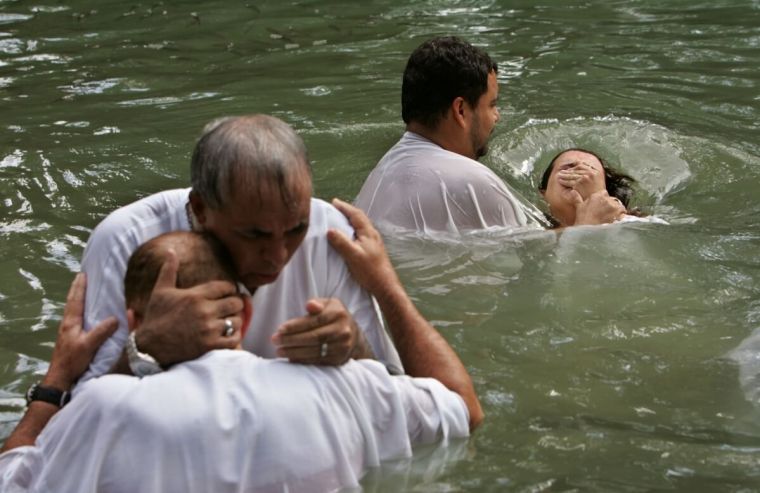In defence of online baptisms...

"Increasingly desperate" is one phrase used to me today to describe the Church of Scotland's decision to consider providing access to sacraments for people not physically present in a congregation. Users of Facebook and other social media will know that the possibility of "online baptisms", as this has been described, has been met widely with contempt and disbelief. Many readers here might share that view.
I want to argue the opposite.
Jesus made it clear to his followers that they must go out there into the market place, where the people are.
What is undeniable in the statistics across nearly all denominations is that an inexorable decline in churchgoing is taking place.
Yet recent research, coming as it happens out of the Church of Scotland, shows that many people who leave church retain their faith.
The churches have a big task to do in working out how they can stop the outward flow. Perhaps they can't.
Some say the sexuality issue is a core reason for the decline. For all anyone knows, it might be a reason for people not joining, especially young people.
But at the church statistics conference I attended yesterday, none of those present had found, in vast amounts of research they had either done or were monitoring throughout the country that this, or any other theological reason, was a factor for more than a small minority of people who have left.
I'll look another time at the reasons people do leave.
My point here is the importance of the findings that they might have gone, yet many remain Christians, just not churchgoers.
In any tube station, train carriage, art gallery, people of all ages, millennials, children and baby boomers like me, are in communication on their mobile phones. They are in "communion" with each other at a fundamental level that feels no less visceral for being virtual. Who are we to judge that this medium cannot be one for the sacraments? Shouldn't we try it and see? We should think of ways to take rituals out to where the people are, instead of waiting, possibly hopelessly, for them to come back to church.
For decades, Song of Praise and the Sunday morning service on BBC Radio 4 have brought the familiar rituals of Christian worship into the homes of people who are unable to get to church, don't want to go, or like to do it all.
It could be tempting even to blame Songs of Praise and the BBC for the decline. After all, why go to church when it is all so entertainingly available from the comfort of the sofa, with the words to sing along to the hymns rolling over the screen, and no snooty fellow worshippers to wrinkle noses when you miss a note. The programme's latest recruit as presenter is Vicky Beeching, the former evangelical worship leader who recently came out as gay. It seems to me that online baptisms, or whatever the Church of Scotland is actually trying to reach towards, is simply a natural extension of Songs of Praise on our TV screens.
There is a lot of complex theology around how the sacraments actually work. The Church of Scotland has two, baptism and communion. The Catholic Church has seven. I'm no priest, obviously, but my understanding is that there is an element of transcendence involved, that the sacraments go beyond the physical into the mystical.
So why on earth, then, or in heaven, should it be any less effective if a sacrament is "done" over the internet? Is my faith any less, the priest's prayer less real, the mystery more lacking in substance, if the communication is done online?
I'm relying on the readers of Christian Today to point out the many heresies I've certainly committed here. But it does seem crazy, if all those unchurched Christians really are out there, to keep them out, when all that is needed to let them come in is a simple click.











